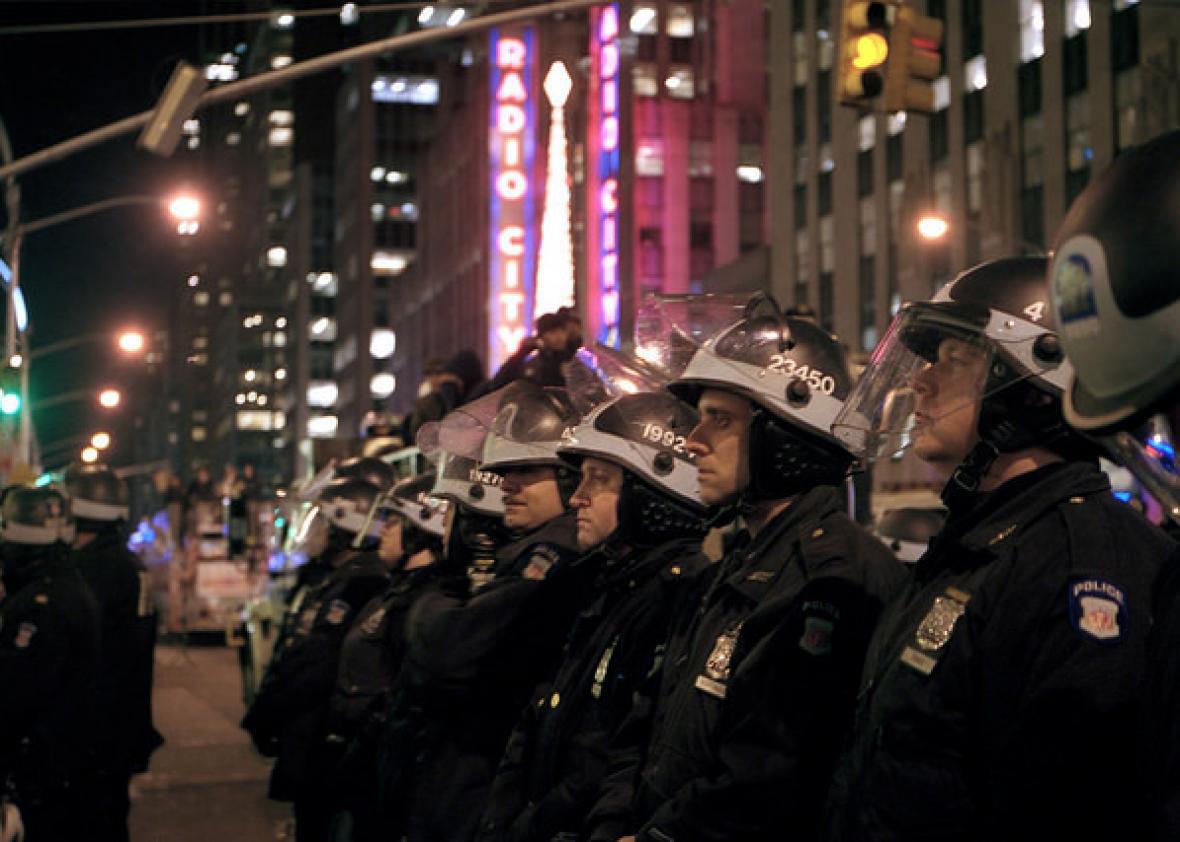On Friday, a panel of judges for the 3rd U.S. Circuit Court of Appeals unanimously ruled that the First Amendment protects individuals’ right to film police officers performing their official duties. The 3rd Circuit now joins the 1st, 5th, 7th, 9th, and 11th Circuits in concluding that the Constitution guarantees a right to record. No federal appeals court has yet concluded that the First Amendment does not safeguard the right to film law enforcement officers conducting police activity in public.
Friday’s decision involved two instances in which the Philadelphia police retaliated against citizens attempting to film them. In the first incident, a legal observer named Amanda Geraci tried to film police arresting an anti-fracking protester when an officer pinned her against a pillar, preventing her from recording the arrest. In the second, a Temple University sophomore named Richard Fields tried to film police officers breaking up a house party when an officer asked him whether he “like[d] taking pictures of grown men” and demanded that he leave. When Fields refused, the officer arrested and detained him, confiscating his phone and looking through its photos and videos. The officer cited Fields for “Obstructing Highway and Other Public Passages,” although the charges were dropped when the officer failed to appear at a court hearing. Geraci and Fields filed civil rights suits against the officers who interfered with their filming attempts.
Writing for the court, Judge Thomas Ambro agreed that both Geraci and Fields held a constitutional right to record the police—a right that officers violated in both instances. “The First Amendment protects the public’s right of access to information about their officials’ public activities,” Ambro wrote. This access “is particularly important because it leads to citizen discourse” on public and political issues, the most highly valued First Amendment activity. Thus, the government is constitutionally barred from “limiting the stock of information from which members of the public may draw.”
The proliferation of bystander videos capturing police brutality clearly factored into Ambro’s analysis. Ambro noted that these videos “provide different perspectives than police and dashboard cameras, portraying circumstances and surroundings that police videos often do not capture.” Civilian videos also “fill the gaps created when police choose not to record video or withhold their footage from the public.” These bystander recordings have “spurred action at all levels of government to address police misconduct,” helping police departments “identify and discipline problem officers” while assisting civil rights investigations.
Unfortunately, the court also granted qualified immunity to the officers who violated Geraci and Field’s rights. By a 2–1 vote, the court found that the right to record was not “clearly established” at the time. As Judge Richard L. Nygaard pointed out in a partial dissent, this assertion is difficult to swallow for two reasons. First, even before Friday’s ruling, the federal judiciary had developed a “robust consensus” that the First Amendment protects a right to film officers. This consensus should’ve put the Philadelphia police on notice that they cannot stop bystanders from filming them. Second, the Philadelphia Police Department had already recognized citizens’ right to record in 2011, as did the U.S. Department of Justice in 2012. The officers who forbade Geraci and Field from filming them should have been aware that they were breaking the law. And so, Nygaard argued, they should not have received immunity from Geraci and Field’s lawsuits.
Fortunately, Friday’s ruling establishes the right to record within the 3rd Circuit beyond any doubt, meaning officers who violate that right in Delaware, New Jersey, or Pennsylvania may be sued. The Philadelphia police are now on notice: An individual who films law enforcement activity isn’t breaking the law; she’s exercising her constitutional rights. Bystander videos may not eliminate police misconduct. But they play a vital role in our national debate about the lawlessness of law enforcement. And the Constitution does not allow police to muffle that debate by denying citizens the right to document their misconduct with a camera.
